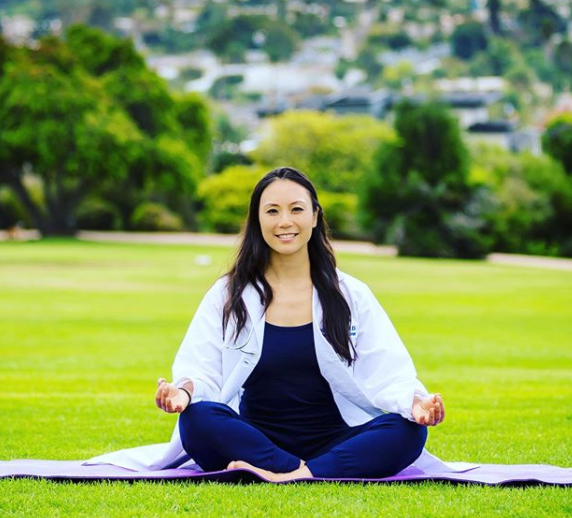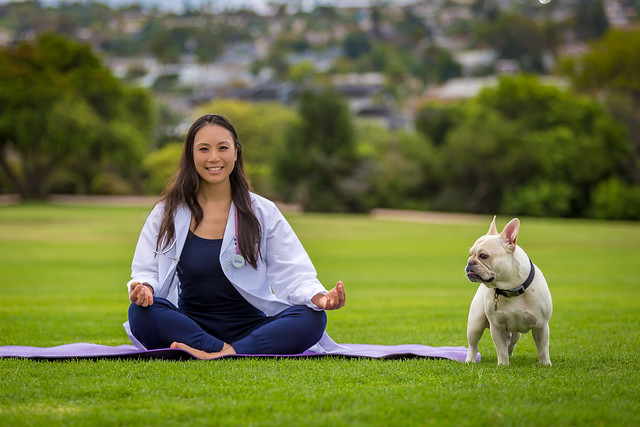Now, more than ever, I have called upon my meditation practice to help me through each day. Every morning, whether I’m headed to the hospital or self-isolating at home, I find my way to my meditation pillow for 30 minutes. This is a very stressful time for a physician. There is no question that I love my job, and I thrive in stressful environments. However, these times are unprecedented. No doctor has trained for this. But my mindfulness practice has guided me through the stressful hospital days and has helped me navigate the challenges with dignity, grace, and compassion.
I remember when I first started meditating; I was living in NYC, 9/11 had just occurred and I felt stressed about everything. I could hardly sit still for even 5 minutes. But regardless of how hard it was (and it was hard!), I would practice every day. Even for just 5 minutes. Eventually, I started to notice the benefits — I was no longer ruled by my concerns about the future or dwelling in the past — I felt more present in my daily life, and consequently, more free.
My meditation practice really took flight during med school. I was filled with so many feelings of inadequacy and self-doubt. How could I ever have the knowledge and healing instinct that seemed to come so easily to my mentors? But when I committed to the practice, I found it inside me — that sense of knowing… the confidence and self-love that it took to believe I could be all the things I set out to be. It motivated me to study harder and work longer hours. It took years of practice, and some days are harder than others. But it’s in those moments, I know I must go back to my practice. In moments of doubt and fear, I sit– to stay grounded and centered. In times of discomfort I call upon meditation for comfort and guidance — and it has never failed me. In these times of the
COVID-19 pandemic, I practice meditation daily. And without it, I would be a very different person. Who knows, I may have let the stress get to me. But because of the support of meditation, I know myself better, and I can summon the courage needed to take on these difficulties ahead, and step up to the plate the way my patients need me. You can too.


